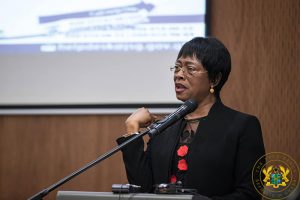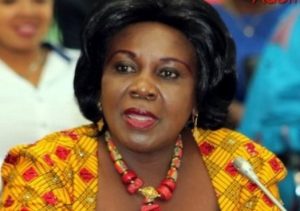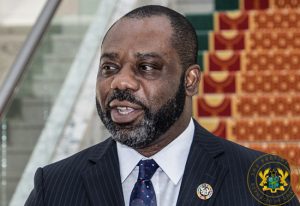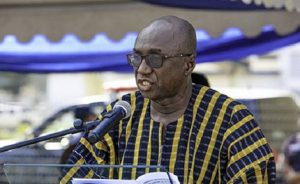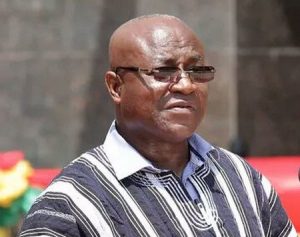The Supreme Court will on March 9, 2022 determine whether a deputy speaker presiding over the business of Parliament can be counted for the purposes of quorum, or can vote on a matter before the House while still presiding.
This comes at a time there seem to be growing incoherence in the decisions of Speaker Alban Bagbin and his First Deputy, Joseph Osei-Owusu.
On November 30, last year, Mr. Osei-Owusu who is also the elected Member of Parliament for Bekwai (NPP) in the Ashanti Region, presided over an NPP-sided House to overturn an earlier vote of the House rejecting Government’s 2022 Budget.
The Bekwai MP, though presiding over the business of the House on the occasion, counted himself for the purposes of taking what turned out to be a controversial vote.
This vote effectively overturned the earlier vote which had been taken by an NDC-sided House, conducted by Speaker Bagbin on November 26.
The other side of the House had on the two occasions boycotted the House over concerns they had voiced out.
Then on Tuesday, February 22, 2022, the First Deputy Speaker of Parliament, Joseph Osei-Owusu in another move, ruled dismissing a motion that had already been admitted by Speaker Bagbin for a bi-partisan Parliamentary Committee of Inquiry into Government’s COVID-19 Expenditure.
A lawyer cum law lecturer, Justice Abdulai subsequent to the November 30, 2021 clash between Speaker Bagbin and his First Deputy, invited the Supreme Court to pronounce as unconstitutional, Deputy Speaker, Joseph Osei Owusu’s action of counting himself for the purposes of quorum.
He argued in the context of articles 102 and 104 of the 1992 Constitution that the Deputy Speaker was not permitted to count himself for the purposes of quorum, since he had neither an original nor a casting vote as Speaker presiding.
The crucial decision will be given by Justices Jones Dotse as Court President, Nene Amegatcher, Prof. Ashie Kotey, Mariama Owusu, Lovelace Johnson, Clemence Honyenuga and Yoni Kulendi.


